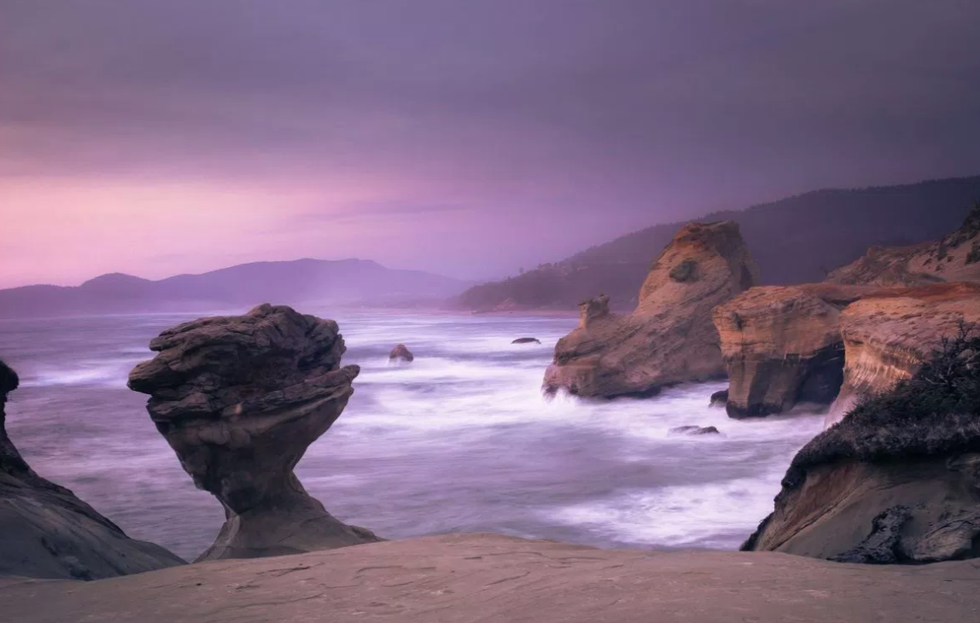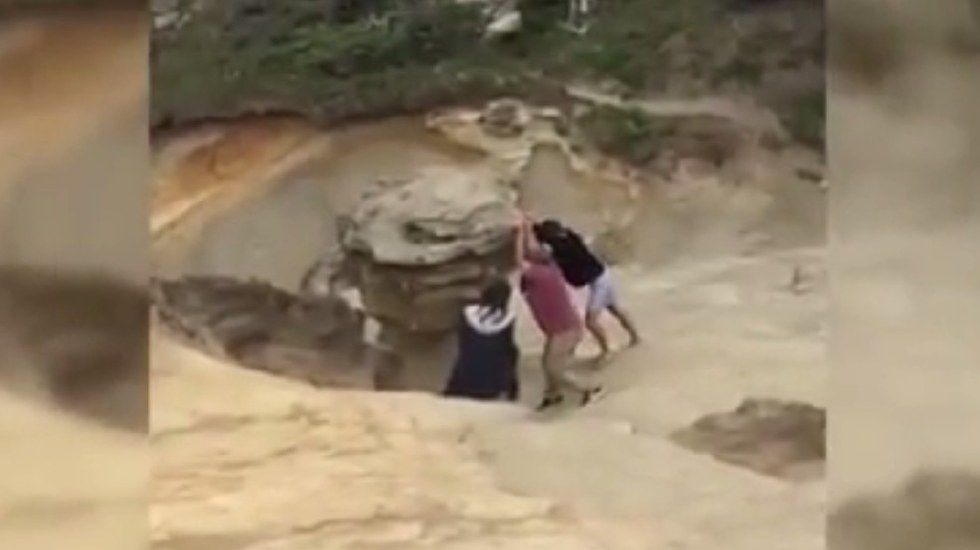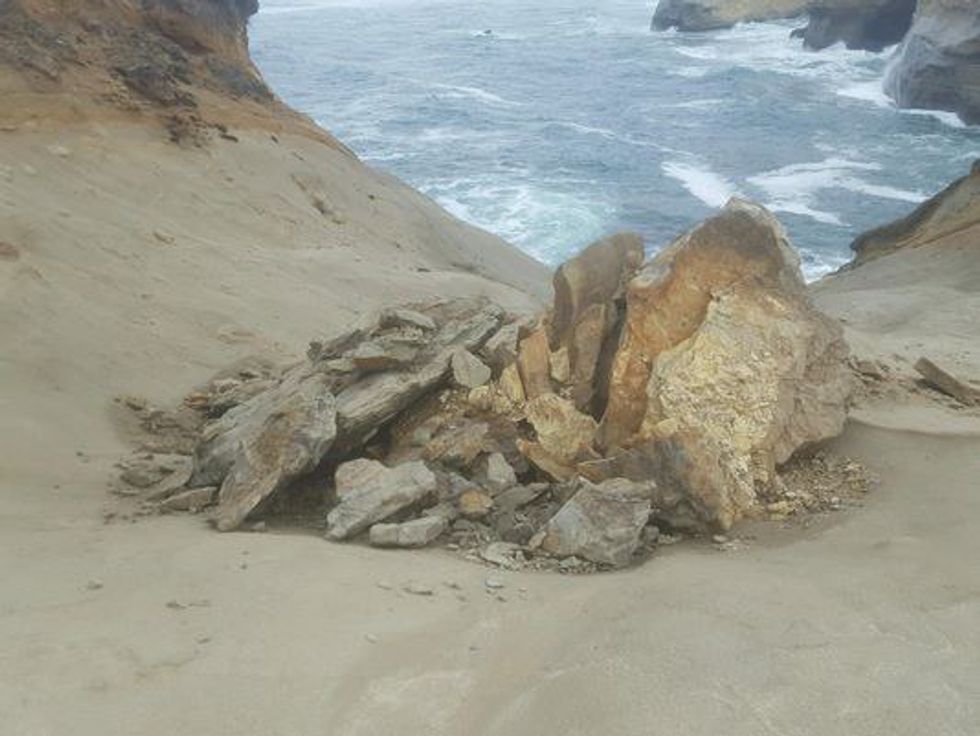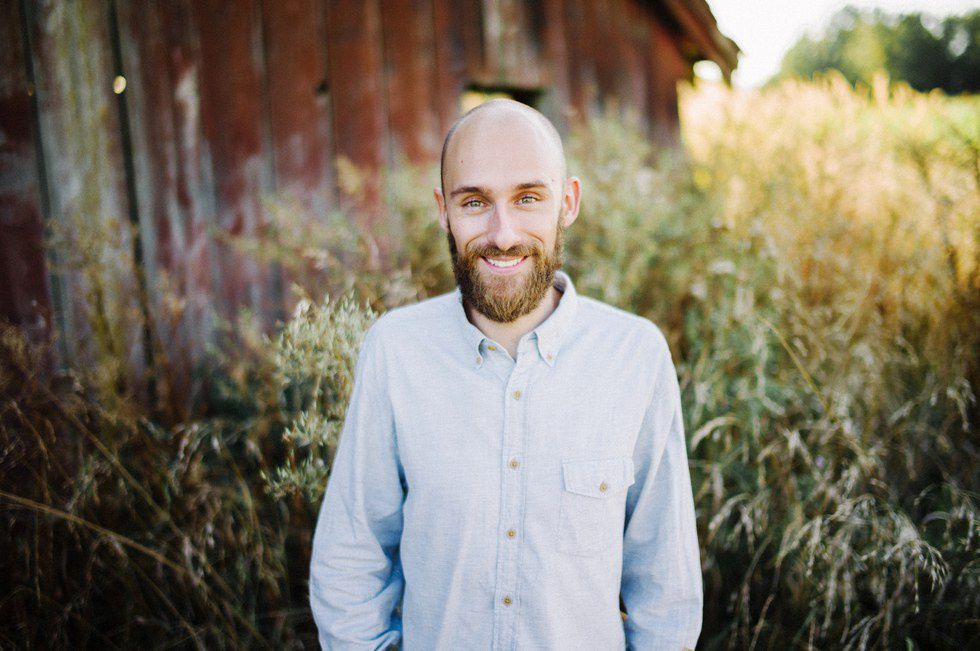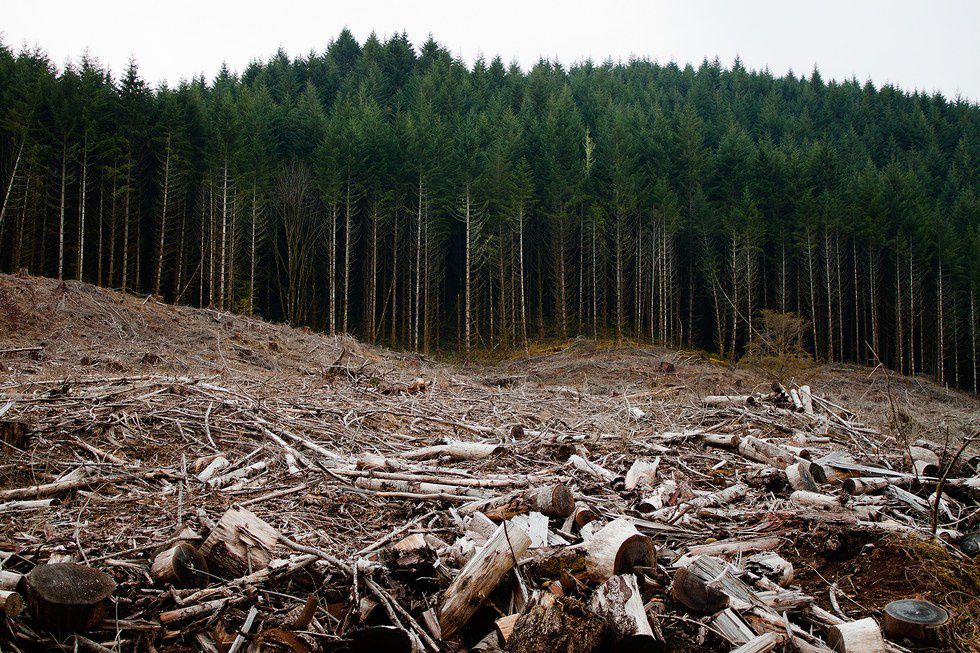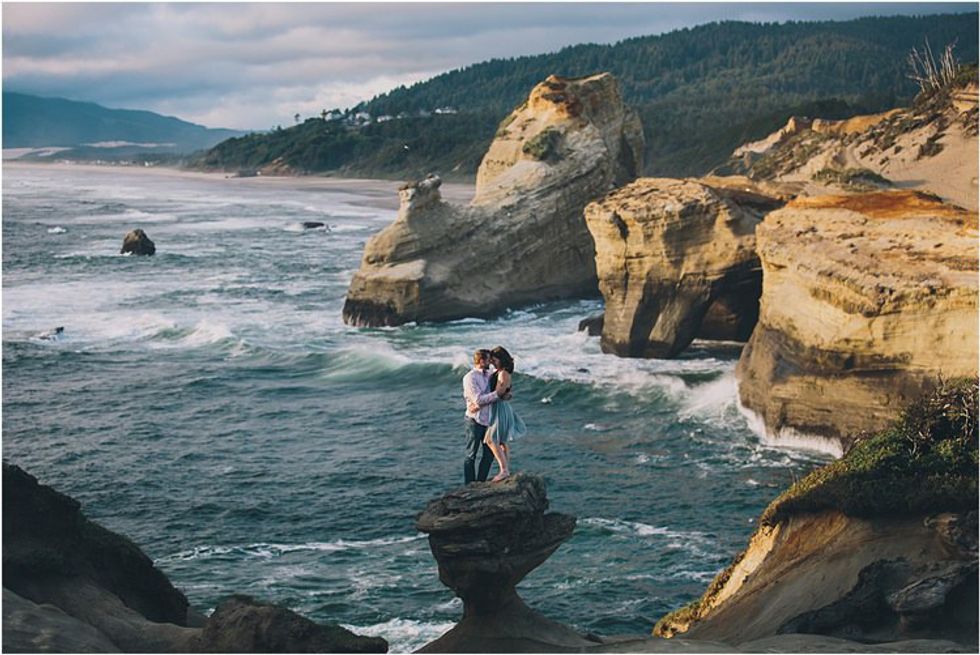As I’m sure many of you have heard, just the other week, at Cape Kiwanda in Pacific City, Oregon, several people were caught on camera pushing over the iconic rock formation, the Duckbill.
Cape Kiwanda is part of the Three Capes Scenic Route along the coast of Oregon in Pacific City. Cape Kiwanda is the smallest of the three capes, yet offers great wave action, spectacular views as well as various hiking trails and fishing opportunities. One of Cape Kiwanda’s biggest attractions was a thousands of years old rock formation called the Duckbill. On August 29, 2016, however, this widely photographed, spectacular attraction was toppled down by vandals.
This tragedy broke the hearts of many Oregonians as the state beach was often a family gathering place. David Kalas, the man who caught the vandals on camera, watched in horror and heartbreak as he watched the Duckbill—a memorable part of his childhood growing up in Pacific City—begin to wobble then topple to the ground. Oregon State Police are determining how to pursue possible violations of state park rules and state laws.
The destruction of such a beautiful, natural formation got me thinking about the power of destruction. For one: just how intense and powerful is destruction? Do we fully understand what we are doing when we destroy? Finally, why do human beings find destruction mesmerizing and enticing?
Just how intense and powerful can destruction be?
Destruction is defined as “the action or process of causing so much damage to something that it no longer exists or cannot be repaired”. In context of the Duckbill, by pushing on the fragile formation, the vandals knocked over the sandstone rock and obliterated it. After they were finished with their ‘fun’ the Duckbill was no longer the famous sandstone formation it once was; it became a pile of unusable, unrecognizable and crumbled rock.
This part, however, is obvious; The rock was obviously destroyed. My question is however, just how intense and powerful can their harmful and destructive act be? Since they knocked over the rock formation, numerous Oregonians and naturalists have expressed outward rage and concern.
For example, I first heard of this tragedy from an account I follow on Instagram. @pnwonderland shares pictures of the beautiful, natural world we live in focusing more specifically on the Pacific North West. As “advocates for adventure, fun, and a community in our unique corner of the world,” when the owner of the account, Tommy, heard about the destruction that took place in his “corner of the world”, he expressed his concern through an extremely passionate and long Instagram post which I quote below:
“I have struggled to find the right words as I have seen this iconic Cape Kiwanda rock purposefully tumble to the ground. Before Instagram ever began, Pacific City and Cape Kiwanda have been a home away from home for me. I grew up just about an hour inland and spent nearly every weekend there with my family dog hiking, exploring, relaxing, enjoying, and simply soaking up the incredible beauty. It is where my deep love and appreciation for the Oregon Coast began and why nowhere else in the entire world gives me the same feeling.
“What took nature hundreds, or thousands of years, to beautifully carve and create…Was simply destroyed within seconds. It nearly brought me to tears.
“We absolutely love sharing photos of the Pacific Northwest here on @pnwonderland. We live in one of the most beautiful areas of the entire world. With that, needs to come an incredible amount of responsibility and respect. If you would like to visit a location that we feature, leave it even cleaner, healthier, stronger, than when you arrived. Pick up trash, avoid areas that are roped off, show the beautiful region that we live in respect, and encourage others to do the same. I have put years of my life into developing the incredibly passionate community here at @pnwonderland and if there is one single thing that I can ask in return, it is to collectively treat this true wonderland that we live in…with respect. If we do not, there will be more moments of destruction just like this one.”
By destroying the Duckbill, those responsible destroyed a little part of Tommy’s (pictured above) childhood, as well as the childhoods of many others. In a few seconds, they crushed memories, prevented others from making future memories and wrecked a little part of our world.
Do we understand the power we hold—as human beings—when it comes to our natural world and what happens when we destroy it?
Arguably, human beings have evolved to become the most powerful creatures on the plant. The only thing, in my opinion, more powerful that humans is the force of nature. As for our power, however, we can create, invent, build…we can fend off danger and our cognitive powers are amazing. On the other hand, we can also destroy. Despite being the powerful creators we have become, it is still within our responsibility, as Tommy mentions, to protect our natural world. After all, She has given us everything we know.
Instead, however, human beings have a tendency to clear cut forests for apartment complexes or lumber; use harmful chemical fertilizers, insecticides and herbicides to increase production of food while polluting the air, soil, and water; partake in large scale farming which feeds the world but also spreads disease to livestock and other human beings; and push over a tempting rock, destroying the formation and forcibly prohibiting future enjoyment and memories.
While pushing over this one rock formation in Cape Kiwanda may seem minuscule, it really is not. Thinking about the bigger picture, these tiny destructions do truly add up. For those of my readers still in school (for those not, think back): how many times has a teacher said, “Don’t miss a homework assignment. You may think it’s only 10 points but in the end, they will add up and tank your grade”? Even subtler, you may think getting 80 percent on each assignment will be okay, but in the end, you’re going into finals at a B-. The same applies here, but on a much more daunting and great scale.
Cape Kiwanda being a small, small fragment of our world, does not validate destroying it. It also doesn’t make this destruction any less harmful or impactful. By knocking over this rock formation, the vandals have not only torn a small part of our world from future inhabitants but passed along the idea that small destructions are okay. These small destructions can be as minuscule as taking a rock from a state park, leaving a gum wrapper behind or crouching under a rope/climbing a fence to get a better picture. All of these are harmful and will eventually make an impact.
Here, a couple can be seen posing on top of the Duckbill. Although they didn't crumble the formation in the moment, this little act added to its final demise by weakening the sediment.
Just because we cannot see the destruction happen right in front of us doesn’t mean it is not happening. With the Duckbill, we saw thousands of years of natural work crumble in front of our eyes. The slow and ‘smaller’ destructions won’t be as instantaneous as watching the rock fall but will slowly evolve overtime until one day the damage is irreversible and the landscape is unrecognizable.
Finally, why do human beings find destruction mesmerizing and enticing?
We see the human beings desire to destroy start at an early age. Have you ever watched a child build up their Legos or blocks then tear them down? It is almost as if the joy in building comes from the satisfaction of knowing that soon they will be able to tear it all down. Such is only one example of humanities urge to destroy. Throwing rocks off hillsides is another. So is pushing the Duckbill to its crumbly death.
To answer this question—why do we find destroying enticing—I turned to online forums to see others thoughts and ideas on the subject.
In a Reddit forum titled “Why do humans like to watch things break, get destroyed, or crash?” I found several responses and ideas that intrigued me.
To begin, one possible reason why human beings enjoy destroying and watching destruction is due to our psychological “death drive”. This idea was first proposed by Sigmund Freud, the founding father of psychoanalysis. “Death Drive” is the drive towards death and self-destruction, desdrudo, the opposite of libido, the drive to create life. In a wider understanding, “death drive” can come to encompass destruction in broader terms. It can be interpreted as the human attraction to the entropy, or disorderliness, that destruction generates. In the same way we are attracted and impressed by works of art, sculptures, buildings, movies etc. that require a lot of energy to make, seeing this energy released can be equally as pleasing.
Another possible reason we are attracted to destruction is because in our nature, we are creators. I found this particularly interesting because I had never thought of human beings and unable to destroy. In reality, we are primarily creators. Physically, destruction is an arduous task without tools created for destruction purposes. For example, we cannot go up to a building or a beautiful car, which a human being has created, and tear it down and destroy it with our two hands. We must create tools designed to destroy in order to take down the work we, or someone, has created. In the words of the forum responder, “There is a certain love affair with the fact that we can create, but we, by ourselves are virtually powerless to destroy. So, when the opportunity arrives to watch a man-made effort to destroy something, people become intrigued.”
This concludes the heart of my article but I would like to leave the readers who have bared with me to the end with a few questions:
- Why do you think human beings enjoy destroying?
- How can we work together as a community to shift the love for destruction into respect and appreciation for the intact?
- Lastly, what can you do, as an individual, to help maintain the beautiful world we live in and spread the necessity of respect for nature amongst your community?



